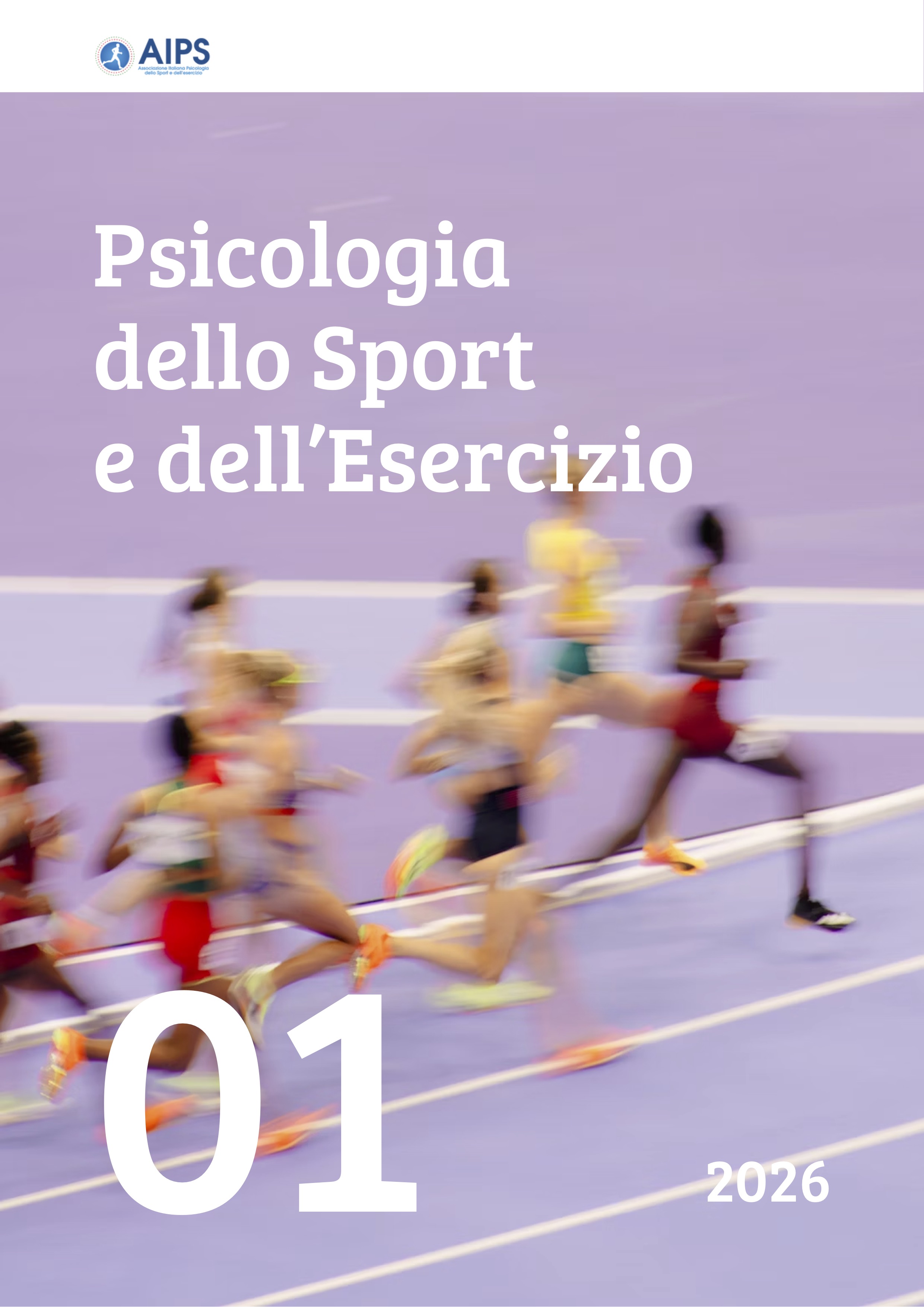The Role of Compassion in Athletic Performance, Stress Reduction, and the Promotion of a Positive Sporting Environment.
Keywords:
self compassion, resilience, mental well-being, sport psychology, pedagogy of errorAbstract
This narrative review explores the central role of compassion in sport, with a particular focus on self-compassion as a tool for developing resilience, learning from mistakes, and promoting athletes’ psychological well-being. Through the integration of theoretical contributions, autobiographical accounts, and neuroscientific studies, the work highlights how compassion fosters more inclusive and sustainable sporting environments, contributing to transformative leadership. Self-compassion is proposed as a pedagogy of error, capable of reducing performance anxiety and dysfunctional perfectionism, and guiding sports culture toward personal growth. Finally, future research perspectives are outlined, along with the use of digital tools to make compassionate practices more accessible and measurable, redefining sporting excellence in a more authentic, inclusive, and deeply human way.
References
Adam, M. E. K., Eke, A. O., & Ferguson, L. J. (2021). “Know That You're Not Just Settling”: Exploring Women Athletes' Self-Compassion, Sport Performance Perceptions, and Well-Being Around Important Competitive Events. Psychology of Sport and Exercise. Pubblicato online su PubMed: https://pubmed.ncbi.nlm.nih.gov/33894692Bryant, K. (2018). The Mamba Mentality: How I Play. Milano: Mondadori.
D’Angelo, C. (2020). La letteratura sportiva: un approccio critico. La letteratura e noi. https://www.laletteraturaenoi.it
Deci, E. L., & Ryan, R. M. (2000). Self-determination theory and the facilitation of intrinsic motivation, social development, and well-being. American Psychologist The role of emotional intelligence and quality relationships in athletes’ and coaches’ levels of satisfaction: a multi-study analysis Autori: S. Jowett, S. Wachsmuth, I. D. Boardley, A. L. Balduck Rivista: Sports Coaching Review (2024)
Edmondson, A. (1999). Psychological safety and learning behavior in work teams. Administrative Science Quarterly, 44(2), 350–383.
Edmondson, A. C., & Lei, Z. (2014). Psychological Safety: The History, Renaissance, and Future of an Interpersonal Construct. Annual Review of Organizational Psychology and Organizational Behavior
Fransen, K., Boen, F., Stouten, J., Cotterill, S., & Vande Broek, G. (2017). Optimal environments for team functioning in sport organizations. In C. R. D. Wagstaff (a cura di), The Organizational Psychology of Sport: Key Issues and Practical Applications (pp. 53–70). London: Routledge.
Gilbert, P. (2007). Psychotherapy and Counselling for Depression (3ª ed.). London: Sage.
Gilbert, P. (2009). The Compassionate Mind. London: Constable & Robinson / Oakland, CA: New Harbinger.
Gilbert, P. (2010). Compassion Focused Therapy: Distinctive Features. London: Routledge. Trad. it. a cura di Petrocchi, N. (2012). La terapia focalizzata sulla compassione. Caratteristiche distintive. Milano: Franco Angeli.
Kuchar, A. L., Neff, K. D., & Mosewich, A. D. (2023). Resilience and Enhancement in Sport, Exercise, & Training (RESET): A brief self-compassion intervention with NCAA student-athletes. Psychology of Sport and Exercise, 67, 102426.
MyLLENNIUM Award. (2024). Letteratura sportiva: 10 libri sullo sport da leggere assolutamente. https://www.myllenniumaward.org
Mosewich, A. D., Crocker, P. R., Kowalski, K. C., & DeLongis, A. (2013). Applying self-compassion in sport: An intervention with female athletes. Journal of Sport and Exercise Psychology, 35(5), 514–524.
Neff, K. D. (2003a). Self-compassion: An alternative conceptualization of a healthy attitude toward oneself. Self and Identity, 2(2), 85–101.
Neff, K. D. (2003b). The development and validation of a scale to measure self-compassion. Self and Identity, 2(3), 223–250.
Neff, K. D., Kuchar, A. L., & Mosewich, A. D. (2023). Resilience and Enhancement in Sport, Exercise, & Training (RESET): A Brief Self-Compassion Intervention with NCAA Student-Athletes. Psychology of Sport and Exercise, 65, 102334
Petrocchi, F. (2003). Sport e letteratura nella storia. In Enciclopedia dello Sport. Roma: Istituto della Enciclopedia Italiana Treccani.
Pasolini, P. P. (1971). Il calcio è un linguaggio con i suoi poeti e prosatori. In Scritti corsari (pp. 123–126). Milano: Garzanti.
Reis, H. T., Sheldon, K. M., Gable, S. L., Roscoe, J., & Ryan, R. M. (2000). Daily well-being: The role of autonomy, competence, and relatedness. Personality and Social Psychology Bulletin, 26(4), 419–435. https://doi.org/10.1177/0146167200266002
Reis, H. T., Sheldon, K. M., Gable, S. L., Roscoe, J., & Ryan, R. M. (2015). Daily well-being: The role of autonomy, competence, and relatedness. Personality and Social Psychology Bulletin, 41(7), 1044–1056.
Rockliff, H. E., Gilbert, P., McEwan, K., Lightman, S. L., & Glover, D. A. (2008). A pilot exploration of heart rate variability and salivary cortisol responses to compassion-focused imagery. Clinical Neuropsychiatry, 5(3), 132–139.
Roeser, R. W., Skinner, E., Beers, J., & Jennings, P. A. (2014) Mindfulness training and teachers’ professional development: An emerging area of research and practice Rivista: Child Development Perspectives
Downloads
Published
Versions
- 2025-11-03 (2)
- 2025-10-21 (1)
How to Cite
Issue
Section
License
Copyright (c) 2026 Francesca Praticò

This work is licensed under a Creative Commons Attribution 4.0 International License.
Authors retain copyright and grant the journal the right of first publication, with the work simultaneously licensed under a Creative Commons Attribution 4.0 International License (CC BY 4.0), which permits use, sharing, adaptation, distribution and reproduction in any medium or format, provided that appropriate credit is given and the original publication in this journal is acknowledged. Authors may enter into additional non-exclusive arrangements for the distribution of the published version (e.g., deposit in institutional repositories or inclusion in books), provided the initial publication in this journal is acknowledged.



